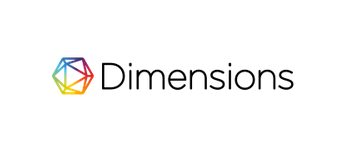Publication Ethics
The Journal of Multidimensional Management adheres to the Committee on Publication Ethics (COPE) principles. All parties—authors, reviewers, and editors—must uphold integrity, transparency, and accountability throughout the publication process.
1. Principles and Standards
-
Honesty & Accuracy: Report methods, data, analyses, and findings truthfully; no fabrication, falsification, or inappropriate manipulation.
-
Objectivity & Fairness: Decisions are based solely on scholarly merit; no discrimination.
-
Transparency: Disclose methods, data availability, funding, and conflicts of interest (COI).
-
Accountability: Authors, reviewers, and editors are responsible for safeguarding the scholarly record.
2. Authorship & Contributions
-
Authorship criteria: Only those who made substantial contributions to conception/design, data collection/analysis, or interpretation; drafted or critically revised the work; approved the final version; and agree to be accountable.
-
Contributor roles: Use CRediT taxonomy in the Title Page.
-
Changes to authorship after submission require written approval from all authors and the editor.
-
Acknowledgements: List funders and non-author contributors separately.
3. Duties of Authors
-
Originality & Prior Publication: Submit original work not under review elsewhere. Clearly cite and permission any reused material; avoid self-plagiarism and salami publication.
-
Research ethics: State ethical approval and informed consent for human/animal research when applicable.
-
Data & materials: Provide a Data Availability statement and share data/materials upon reasonable request or via repositories where possible.
-
COI & Funding: Declare all financial and non-financial COIs and funding sources.
-
Use of AI tools: Generative AI tools may not be listed as authors. If used (e.g., for language editing or analysis), disclose the tool, version, scope of use, and conduct human verification; authors remain fully responsible.
-
Plagiarism screening: Submissions are checked (e.g., Turnitin/iThenticate). Papers that breach policy may be rejected or retracted.
4. Duties of Reviewers
-
Confidentiality: Treat manuscripts as confidential; do not use information for personal advantage.
-
Objectivity: Provide constructive, unbiased feedback; avoid personal remarks.
-
COI: Decline reviews where a conflict exists (e.g., recent collaboration, shared affiliation, financial interest).
-
Timeliness: Accept reviews only when able to deliver within the agreed timeframe.
-
AI tools: Do not upload manuscript content to public AI systems. If AI is used to assist (e.g., grammar), disclose to the editor and ensure confidentiality is preserved.
5. Duties of Editors
-
Editorial independence & fairness: Decisions are based on relevance, originality, and validity; authors’ identity does not influence decisions.
-
Confidentiality: Manuscripts and reviewer identities are protected.
-
COI management: Editors recuse themselves from handling papers where they have a conflict and assign an alternative editor.
-
Reviewer selection: Choose qualified, diverse reviewers and monitor review quality.
6. Misconduct, Image Integrity, and Redundant Publication
-
Misconduct includes fabrication, falsification, plagiarism, duplicate or redundant publication, inappropriate image manipulation, undisclosed COIs, and unethical research.
-
Images/graphics: Only minimal, non-misleading adjustments (brightness/contrast/cropping) are permitted; manipulation that changes interpretation is prohibited.
-
Preprints: Submissions previously posted on non-peer-reviewed preprint servers are allowed if disclosed; authors must cite the preprint and update it with the DOI upon publication.
7. Handling Allegations
-
Investigation: The editor follows COPE flowcharts; the journal may request data, ethics approvals, and responses from authors.
-
Outcomes & Sanctions: May include correction, expression of concern, retraction, submission embargo, or notification to institutions/funders.
-
Communication: Decisions and rationales are communicated transparently to all parties.
8. Corrections, Retractions, and Expressions of Concern
-
Corrections (Errata): Issued for honest errors that do not invalidate findings.
-
Retractions: Issued for unreliable findings (misconduct or major error), unethical research, or duplicate publication; retraction notices remain linked to the record.
-
Expressions of Concern: Used when investigations are ongoing but concerns are credible.
9. Complaints and Appeals
Authors may appeal editorial decisions or raise complaints by contacting the editorial office at [journal email/contact]. Appeals must provide detailed justification and will be considered by an editor not involved in the original decision.
10. Transparency Statements
Articles should include: Funding, Conflict of Interest, Ethical Approval/Informed Consent (if applicable), Data Availability, Author Contributions (CRediT), and Acknowledgements.













